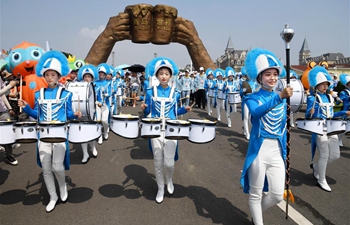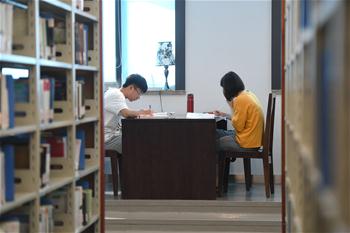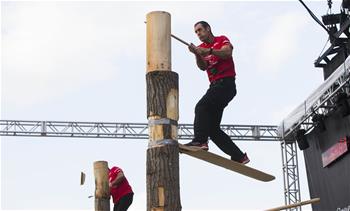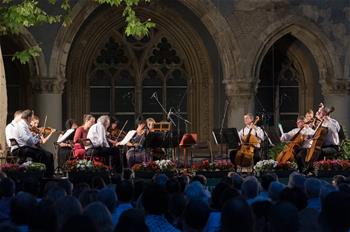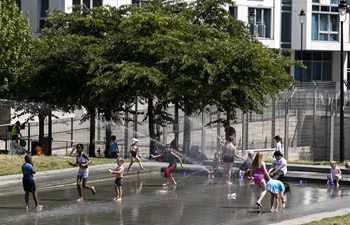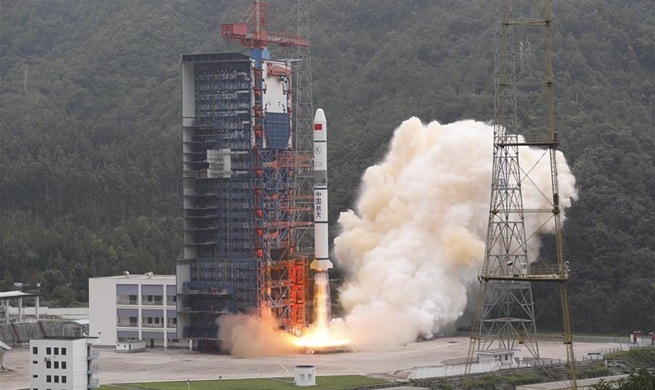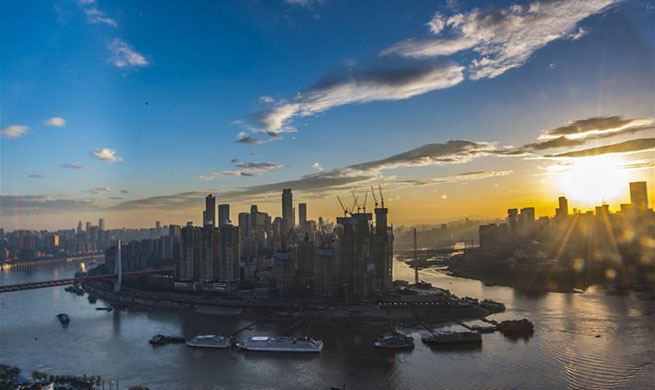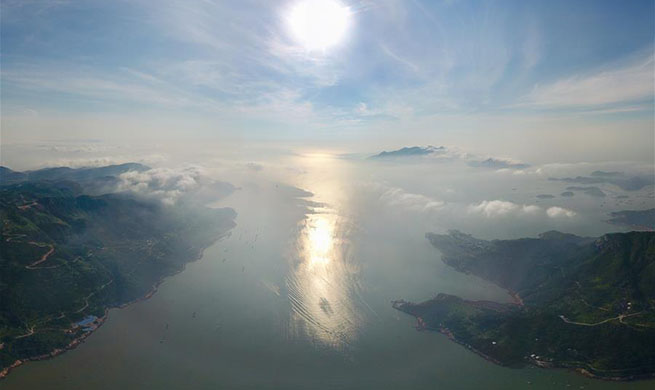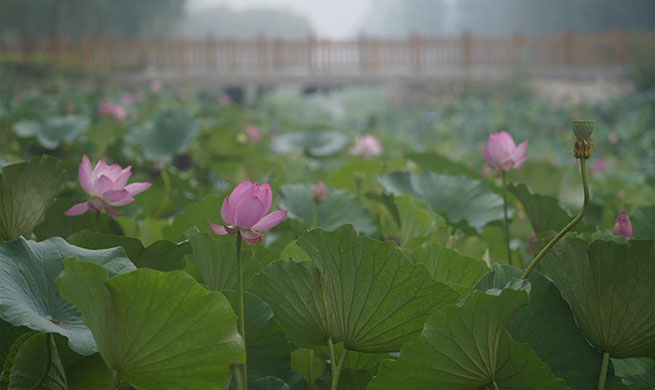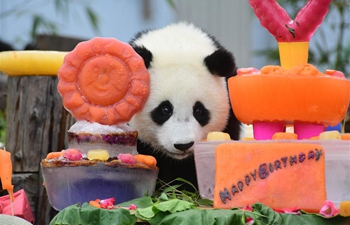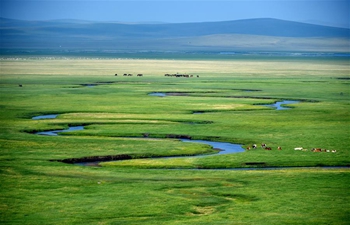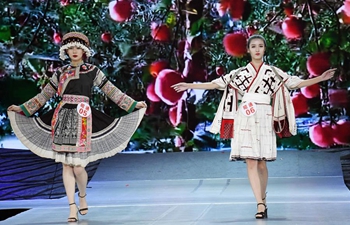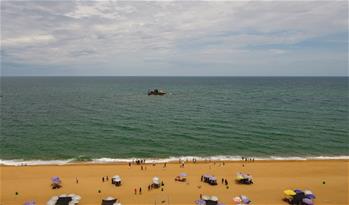MANILA, July 26 (Xinhua) -- Former Philippine President Gloria Macapagal Arroyo described on Friday the Belt and Road Initiative (BRI) as "China's broadest platform for collaboration and cooperation", saying that the Philippines is gaining benefits from the trade and infrastructure cooperation with China.
"Infrastructure is an obvious area that can benefit from the economic cooperation that the BRI embodies," Arroyo told on the Belt and Road China-Philippines Forum on people-to-people exchange and economic cooperation held in Manila.
She lauded China-proposed BRI, saying the 21st Century Maritime Silk Road "fits very nicely" with the Philippines' ongoing "Build, Build, Build" infrastructure project.
The "Build, Build, Build" program, rolled out by the Philippine government in 2017, intends to spend 8 to 9 trillion pesos (roughly 160 to 180 billion U.S. dollars) in the medium-term on building roads, bridges, airports, seaports and railways in the Philippines.
Accelerating infrastructure is one of the Philippine government's policies agenda to usher in the country's "Golden Age of Infrastructure" through the program.
Tan Qingsheng, the deputy chief of mission and minister counselor at the Chinese embassy in the Philippines, told the forum that the BRI is a "pie for everyone to share, not a pitfall that hinders development."
The BRI, proposed by China in 2013, aims at enhancing all-around connectivity through infrastructure construction, exploring new driving force for the world economic growth, and building a new platform for world economic cooperation.
"The BRI promotes open and inclusive economic cooperation," he said, adding it is a "peaceful development platform" and "not a geopolitical tool" directed against any country.
"China initiated the very idea, but the BRI as a platform is owned and equally participated by all participating countries," he said, adding that the initiative is guided by "consultation and cooperation for shared benefits."
So far, some 126 countries, including the Philippines, and 29 international organizations have signed cooperation documents on BRI with China.
"All the cooperation projects are not imposed on anyone or designed to frame any other country," Tan said, "the BRI is a pie for everyone to share, not a pitfall that hinders development."
"The Philippines is an important developing country with great potentials, and a natural partner in jointly building BRI," he said.
Indeed, some Chinese-funded infrastructure projects have already started in the Philippines.
The construction of the two bridges over Pasig River in Manila and the Chico River Pump Irrigation Projects in the northern Philippines are in full swing.
The New Centennial Water Source-Kaliwa Dam project and the Philippine National Railway South Long Haul are being pushed forward at a steady pace and will contribute to the development of agriculture and transportation in the country.
The former Philippine president also praised the Chinese-funded infrastructure projects, stressing that "the main thing to focus now is on the implementation side."
Arroyo expressed confidence that the Philippines would continue "to exert greater and greater effort to remove on the ground bottlenecks that impede the implementation of projects," referring to "not only projects that involve infrastructure funders but also those that involve trade and investment growth from China."
She said bilateral relations between the Philippines and China "have reached new heights."
"China is correct in striving for partnership and growth and development with its neighbors. This enlightened attitude provides a foundation for continued friendship between China and the world and indeed within China and the Philippines," she further said.
The Philippines, under President Rodrigo Duterte, is an enthusiastic partner of China's BRI.
In November 2018, the governments between China and the Philippines signed a memorandum of understanding on the BRI cooperation.
Duterte attended both the first and second Belt and Road Forum for International Cooperation in Beijing. Both countries have committed to further strengthen the synergies between the BRI and "Build, Build, Build" program.
The Belt and Road China-Philippines Forum on people-to-people exchange and economic cooperation, held by China Public Diplomacy Association and the Presidential Communications Operations Office of the Philippines, seeks to provide new ideas, methods and opportunities in addition to the existing areas of China-Philippines economic cooperation.
